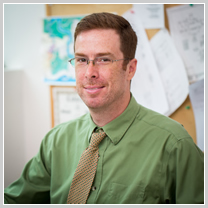
Dennis Keane will be giving a platform presentation at the Amherst Soils Conference on a state-of-the-art large-scale SVE study.
WHEN: Tuesday October 22, 2019 in Session 2 @ 8:30 – 11:00 AM.
Click here for the conference agenda.
Conference registration can be found here.
Platform Abstract:
This presentation will provide an overview of the regulatory, design engineering, and performance components of a large-scale state-of-the-art soil vapor extraction (SVE) system designed to efficiently remove hundreds of thousands of pounds of benzene and chlorobenzene in heterogeneous soils located in a highly industrialized region.
A two million gallon benzene storage tank was formerly located at a chemical manufacturing facility located in Illinois, in the floodplain of the Mississippi River. Soil characterization work completed in 2009 and 2010 within the proposed treatment area estimated the total benzene and chlorobenzene mass to be approximately 390,000 pounds.
A pre-design program evaluated the variable intrinsic permeability of the heterogeneous soils. Pilot testing was performed using multiple injection and extraction configurations to refine full-scale design parameters, estimate timeframes via pore volume exchanges, and identify recalcitrant soil intervals. Based on the pre-design testing data, the full-scale remedial design included approximately 160 nested extraction / air injection wells and two thermal oxidizers (one temporary) to treat the 2.5-acre area.
The SVE system removed (as vapor) 470,000 pounds of benzene and chlorobenzene from the treatment area in 2.5 years. The SVE system was shut down after having met closure criteria; however, the regulatory agency required subsequent additional evaluations, including: risk from soil-to-vapor transfer, repartitioning of the residual contaminant mass to groundwater, and the projected impacts of future fluctuations in groundwater level from underlying impacted soils to the remediated vadose zone soils. As a result of the evaluations and regulatory negotiations, the system was restarted for several months in 2018 and then shut down again after removing an additional 870 pounds of benzene and chlorobenzene.
Presenter Biography:
Dennis Keane is an experienced hydrogeologist, specifically focusing on the designa and implementation of environmetnal remediation technologies. Dennis Keane’s background is primarily in:
– Groundwater modeling for CERCLA environmental sites;
– Organic geochemistry (Masters Degree), specifically the mobility of organic chemicals in the environment;
– Vapor intrusion modeling for state supervised risk evaluations;
– Pilot testing multiple in situ technologies to evaluate applicability for full-scale implementation;
– In-situ remedial designs (AS/SVE/MNA/EMNA/P&T), including implementation and operation;
– Managing and coordinating teams with multiple partnering consultants and subcontractors; and
– Geostatistical analyses to optimize sampling programs and evaluate the effectiveness of remedial applications.
